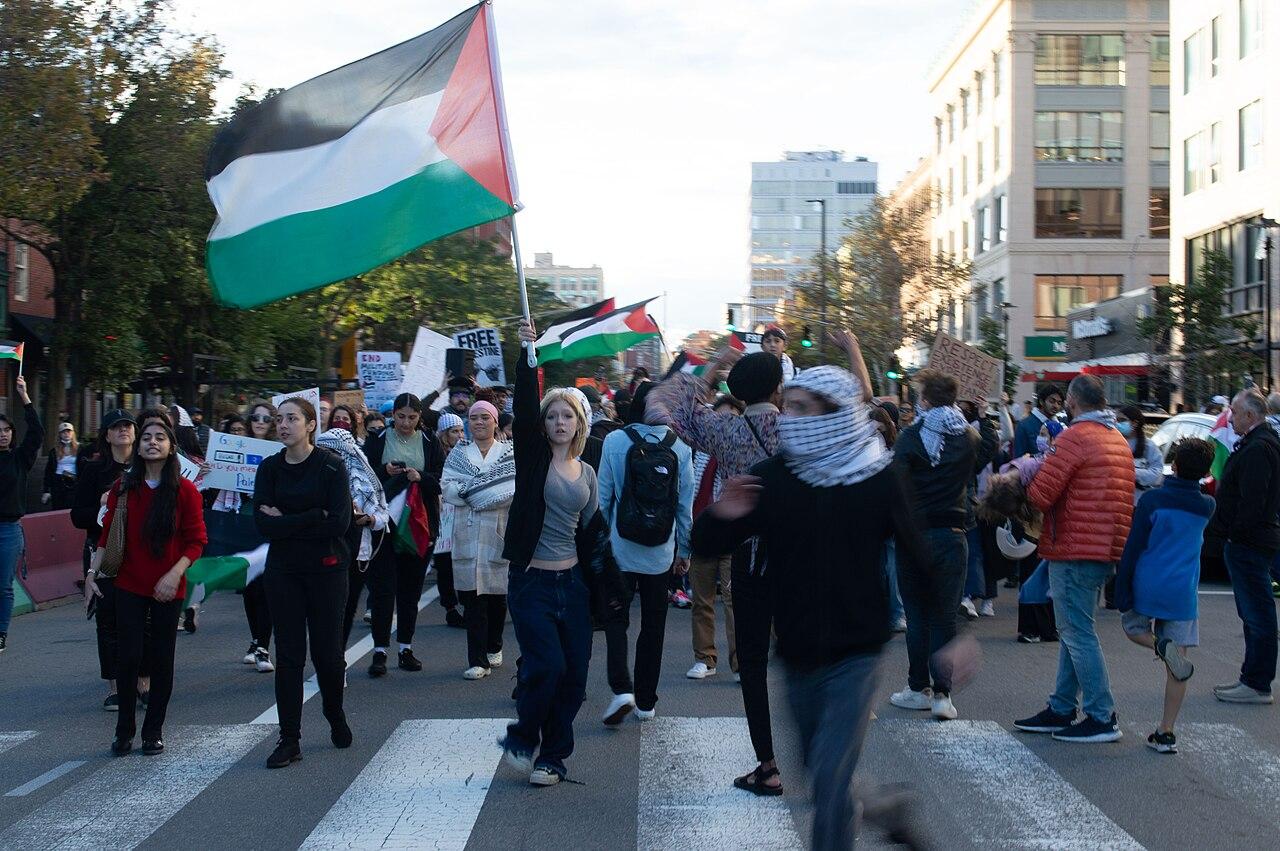Jewish Students Are Experiencing Unprecedented Levels Of Anti-Semitism
On 700 campuses surveyed, 73 percent of Jewish students have experienced antisemitism this year, while incidents have spiked since October 7.

According to a new study by the Anti-Defamation League, nearly three quarters of Jewish students have faced antisemitism this school year. Incidents of antisemitism have spiked since the October 7 onslaught by Hamas terrorists in Israel.
The ADL Center for Antisemitism Research and Hillel International study found 73 percent of Jewish college students and 44 percent of non-Jewish students have experienced or witnessed antisemitism since the start of the 2023-2024 school year. The national survey of American college students also found that prior to Oct. 7, 67 percent of Jewish students said they felt physically safe on campus; after Oct. 7, only 46 percent felt physically safe.
“Jewish students are experiencing a wave of antisemitism unlike anything we’ve seen before, but shockingly, non-Jewish students barely see it,” said ADL chief Jonathan A. Greenblatt. “Since the Oct. 7 massacre in Israel, Jewish students feel increasingly threatened on campus — but college leaders are not doing enough to address this very real fear of antisemitism,” he said.
Together, ADL and Hillel Jewish student organization provide a range of resources to address antisemitism on campus; most recently, ADL and Hillel International launched the Campus Antisemitism Legal Line (CALL), a free legal protection helpline for students who have experienced antisemitism, along with the Louis D. Brandeis Center for Human Rights Under Law, and Gibson, Dunn & Crutcher LLP. Since this service became available two weeks ago, there have been nearly 260 requests for legal assistance across 152 campuses.
Nearly 700 college campuses were surveyed, and nearly half of these institutions (46%) reported at least one antisemitic incident that they had either personally experienced, witnessed, or that constituted an act of antisemitic vandalism on campus. Incidents ranged in severity, from seeing the posting of a problematic flyer to instances of physical assault. The study found that 73% of Jewish students have experienced some form of antisemitism on college campuses just since the start of the 2023-2024 school year.
According to an executive summary of the study, prior to October 7 of this year, when Hamas terrorists penetrated Israeli defenses and murdered more than 1,200 Israelis and residents, slightly more than two in five (43.5%) Jewish students indicated they had been personally targeted by antisemitic incidents on campus at any point in their college career, and even more (63.4%) indicated that they had witnessed at least one incident during that same time. Specific incidents within each category ranged from observing antisemitic graffiti or flyers on campus, to witnessing problematic online comments about Jews or Israel, to being physically threatened or assaulted. A full breakdown and more detailed description of incidents by type can be found in the appendix of the study.
Students who reported having witnessed or experienced an antisemitic incident on campus were asked how they responded to the incident, with options including direct intervention in the situation, checking in with others impacted by the behavior, confronting the individual engaging in the behavior, seeking help from someone else, reporting or expressing concern about the incident or person to school administrators, or doing nothing.
73% of Jewish college students surveyed have experienced or witnessed some form of antisemitism since the beginning of the 2023-2024 school year alone. By comparison, 43.9% of non-Jewish students reported the same during that period. Prior to this school year, 70% of Jewish college students experienced at least some form of antisemitism throughout their entire college experience. Of the non-Jewish students erroneously assumed to be Jewish, nearly half (46%) stated that they had been targeted based on their assumed Jewishness.
26% of students assumed to be Jewish by others reported being on the receiving end of offensive anti-Jewish remarks, compared to 8.7% of those not assumed to be Jewish. Since 10/7, the proportion of non-Jewish students assumed to be Jewish has increased from 7.2% to 12.7%. Of this group, 29.5% reported being the targets of offensive anti-Jewish remarks.
Since October 7, the percentage of Jewish students who said they feel comfortable with others on campus knowing they are Jewish dropped by nearly half. Since October 7, students who have felt comfortable with others knowing they’re Jewish decreased significantly. 63.7% of Jewish students pre-October 7th felt “very” or “extremely” comfortable but now only 38.6% feel the same. A majority of all students — Jewish and non-Jewish — feel like their campus administration has not done enough to address anti-Jewish prejudice at their universities, with 70 percent of students saying their university should do more to address the issue.
When asked who should do more to address the issue, most students (48.2% of Jewish students and 38.5% of non-Jewish students) placed the onus on campus administrators.
More than a third of Jewish students said they felt uncomfortable speaking about their views of Israel, and roughly the same proportion said they feel uncomfortable speaking out against antisemitism.
Nearly a third (31.9%) of Jewish students indicated that they have felt unable to speak out about campus antisemitism, while only 17.6% of non-Jewish students felt the same. 29.8% of Jewish students said that they would be uncomfortable with others on campus knowing about their views of Israel, compared to only 13.9% of non-Jewish students. After 10/7, these numbers increased to 38.3% and 18.9%, respectively.
A plurality of Jewish students do not feel physically safe on campus.
Prior to 10/7, two-thirds (66.6%) of Jewish students said they felt “very” or “extremely” physically safe on campus, compared to less than half (45.5%) post-10/7. Feelings of emotional safety among Jewish students changed even more dramatically – two-thirds (65.8%) of Jewish students said they felt “very” or “extremely” emotionally safe before 10/7, which fell to a third (32.5%) after 10/7.
Not knowing what to do and concern about potential backlash prevents students from reporting anti-Jewish incidents on campus, but even more so for Jewish students.
Of the 55% of Jewish students who reported doing nothing in response to an antisemitic incident, a large proportion reported fear of backlash as their reason for not responding. Of the Jewish students who had been the target of problematic anti-Jewish comments, for example, 14.8% said they did not respond due to fear that the perpetrator would target them again.
While a majority of university students have undergone DEI training, only 18% of those students have received any training about antisemitism.
55.8% of students surveyed said they had previously completed DEI training, but only 18.1% of those who had indicated previous DEI training said that they had completed any training specific to anti-Jewish prejudice. Though DEI programs have become increasingly common on campus, such programs remain limited in scope.
